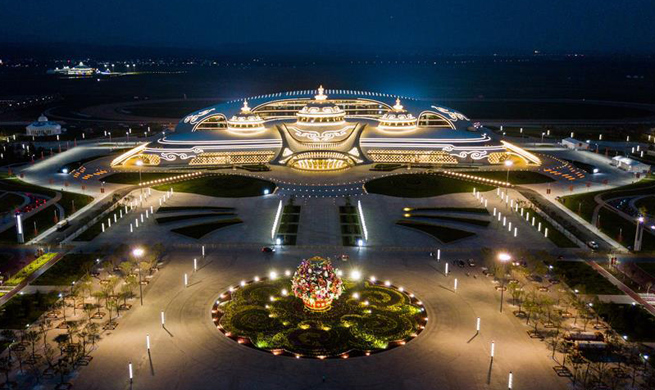NEW DELHI, Aug. 3 (Xinhua) -- BRICS nations have more opportunities for mutual growth and development compared to their challenges, an expert has said.
In a recent interview with Xinhua on the upcoming BRICS summit to be held in China, Varaprasad S. Dolla, a professor from Jawaharlal Nehru University, said the key objective of this summit is about "stronger partnership for a brighter future."
China, which took over the BRICS presidency this year, will host the Ninth BRICS Summit this September in Xiamen, southeast China's Fujian Province.
"Looking at the opportunities and new challenges, I see that there are more opportunities for mutual growth and common development compared to the challenges that these countries face together," said the expert.
Commenting on some western media's skeptical attitude about the prospects of BRICS cooperation, the expert said, "No two countries are without differences."
"When you have five countries coming together, they are bound to have differences, definitely more differences. But differences can be seen as stumbling block provided the differences are addressed and then amicably a common agenda is sort," said Varaprasad.
Reviewing the accomplishments BRICS countries have achieved in the last decade, Varaprasad said, "Look at the trade where it's actually happening within the BRICS countries, it has been growing ever since they came together. Today BRICS trade is to the tune of about roughly 200 billion U.S. dollars among the BRICS countries."
Varaprasad said the future of innovation could be with the bloc.
"One suggestion ...... is that all BRICS countries state their innovation potential," said Varaprasad. "For instance, India and China gave the world a number of scientific innovations in the past."
"And if you take that into account, it is likely that these countries will actually lead the innovation-trajectory in the years to come," said the expert.
On the global economic governance, the expert said today developing countries, particularly BRICS, are able to contribute more to global growth.
"BRICS has now emerged as the major block. Therefore it is likely that they will have a lot more than they had before to contribute to economic governance," said Varaprasad.
The highlight of this year's BRICS summit is to establish a new platform for south-south cooperation by exploring the "BRICS Plus" model involving more countries under the BRICS fold.
"As I indicated, the global economic governance architecture, if it is to become truly representative and inclusive, then initiatives like 'BRICS Plus' is imperative. Therefore inviting a number of countries from the south to the BRICS summit in Xiamen is to be welcomed," said Varaprasad.
When asked how BRICS countries can cooperate to promote the China-proposed Belt and Road Initiative, the expert called for more participation from companies.
"I think it is only when you allow the participation of the companies from these countries within the Belt and Road Initiative, they would also come forward because when they participate, they will bring their own competitive advantages and their own technical know-how and personnel."
Proposed by China in 2013, the Belt and Road Initiative refers to the Silk Road Economic Belt and the 21st Century Maritime Silk Road aimed at building a trade and infrastructure network connecting Asia with Europe and Africa along the ancient trade routes of the Silk Road.

















